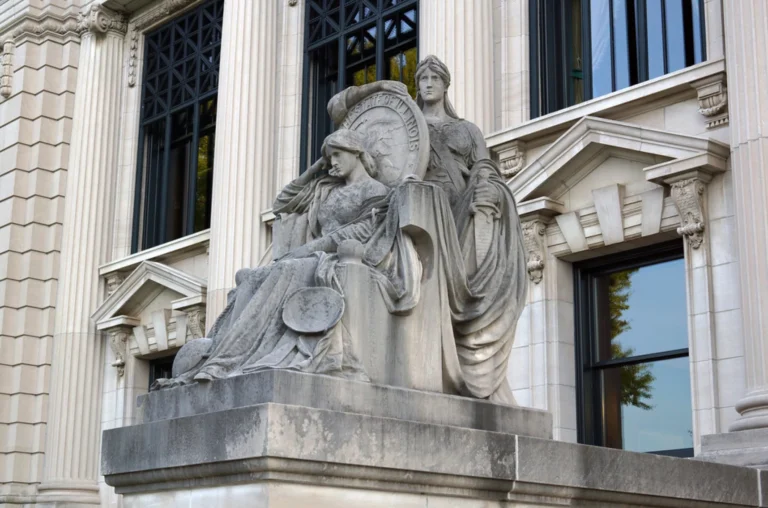Illinois is set to become the first state in the nation to eliminate cash bail after the state Supreme Court ruled Tuesday that a landmark criminal justice reform law did not violate the state’s constitution.
The opinion was released more than six months after the Pretrial Fairness Act was halted by the justices just hours before it was to go into effect on Jan. 1 in response to legal challenges. The high court said the law should now go into effect in September.
In its ruling, the court said the state’s constitution “does not mandate that monetary bail is the only means to ensure criminal defendants appear for trials or the only means to protect the public. Our constitution creates a balance between the individual rights of defendants and the individual rights of crime victims. The Act’s pretrial release provisions set forth procedures commensurate with that balance.”
The bail system overhaul was one of the most controversial provisions of the widely scrutinized SAFE-T Act, a major bill that mandated wide-ranging reforms to policing, court proceedings and victims’ rights in the state.
The court’s ruling stems from a flurry of lawsuits last year brought by roughly 60 sheriffs and state’s attorneys who argued that eliminating cash bail would reduce public safety, put law enforcement in harm’s way and violate the state’s constitution.
In December, Kankakee County Chief Judge Thomas Cunnington agreed with the groups and ruled the cash bail provision unconstitutional, though his ruling would have only applied to counties that had sued.
An appeal by Attorney General Kwame Raoul sent the matter to the state Supreme Court, and the justices ordered that the entire Pretrial Fairness Act wouldn’t go into effect until further notice “in order to maintain consistent pretrial procedures throughout Illinois.”
Despite a two-year ramp up before bail reform was to go into effect, opponents waited until late last year to mount a serious effort to overturn the law, as well as a political pressure campaign ahead of last year’s statewide elections.
In the weeks before the election, opponents derided the SAFE-T Act as a “purge law” and claimed it would make the state — with a particular focus on Chicago — less safe by releasing more violent criminals to prey on the public.
Supporters of the Pretrial Fairness Act said its provisions would simply remove cash bail as a condition that could be set by a judge when considering whether someone was likely to return to court for their hearings or posed a danger to the public.
Studies of jurisdictions that have nearly eliminated cash bail have shown no significant increase in crime generally, nor by defendants released while awaiting trial. In some cases, defendants were more likely to return to court.
Despite many Republican candidates making the SAFE-T Act a focus of law-and-order campaigning last season, Democrats held off most challengers in what was expected to be a bruising midterm election for the party across the county and even expanded their majority on the state Supreme Court.
The elections of justices Elizabeth Rochford and Mary Kay O’Brien was believed to be significant to preserving Illinois’ strong abortion protections, as well as the future of the SAFE-T Act.
The bail reforms were just one part of the SAFE-T Act, some of which have already taken effect. Other measures include requiring all police departments to equip officers with body-worn cameras by 2025, expanding services for victims of crimes and changing how people who are incarcerated are counted for redistricting maps.

